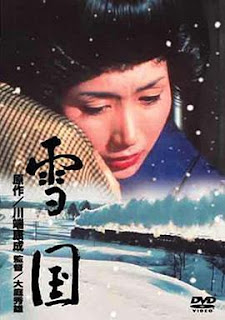2. Siaⁿ-im sùi kah thiaⁿ-tio̍h sim ē suiⁿ
"Chām-tiúⁿ San, taⁿ boeh túiⁿ ah hioh?"
"Góa in-ūi siū-siang, tio̍h khì khòaⁿ i-seng."
"Ai-ah, án-ne chìn hāi."
Chhēng kimono koh tha̍h gōa-thò ê Chām-tiúⁿ, ká-ná boeh kín kiat-sok chit-ê kôaⁿ-giu-giu ê tùi-ōe, tō oa̍t-sin kóng: "Sī lah, lí mā ài pó-tiōng oh."
"Chām-tiúⁿ San, goán sió-tī chit-chūn bô tī chia hioh?" Yoko ba̍k-chiu tī seh téng sàu chi̍t-ē, "chhiáⁿ to-to koán-kò͘ goán sió-tī, pài-thok loh."
He siaⁿ-im súi kah thiaⁿ-tio̍h sim ē suiⁿ, hiáng-liāng ê hôe-siaⁿ kú-kú tī àm-mê ê seh lih chùn-tāng.
Hóe-chhia khí-tāng ah, yi iáu-bô kā téng-sin ùi thang-á kiu ji̍p-lâi. It-ti̍t kàu jek tio̍h iân thih-ki-lō͘ tih kiâⁿ ê Chām-tiúⁿ, yi koh hoah kóng:
"Chām-tiúⁿ San, chhiáⁿ kā goán sió-tī kóng, chit-pái heⁿh-khùn-ji̍t túiⁿ-chhù chi̍t-chōa."
"Hó lah," Chām-tiúⁿ tōa-siaⁿ ìn.
Yoko kā thang-á-mûi koaiⁿ hó, iōng siang-chhiú ù âng kì-kì ê chhùi-phé.
Tī pian-kài ê soaⁿ, chún-pī ū saⁿ-tâi lu-seh chhia, lo̍h-seh thang iōng. Pōng-khang lâm-pak siang-thâu lóng ū tiān-tōng ê pang-seh sìn-hō. Ū gō͘-chheng miâ kang-lâng thang chheng-seh, su-iàu ê sî koh ē-tàng tōng-oân nn̄g-chheng miâ siau-hông-cho͘ ê chheng-liân-thoân.
Yoko ko͘-niû ê sió-tī, kin-nî kôaⁿ--lâng khai-sí tī chit-ê tit-boeh hō͘ tōa-seh khàm tio̍h ê thih-lō͘ sìn-hō-chām chhut-khîn. Chai-iáⁿ che liáu, hō͘ Shimamura tùi yi koh-khah ū hèng-chhù ah.
M̄-koh, chia só͘ kóng ê "ko͘-niû", put-kò sī Shimamura ê khòaⁿ-hoat. Yi sin-piⁿ hit-ê cha-po͘ tàu-té sī yin sáⁿ-lâng, che Shimamura tong-jiân sī m̄-chai. Nn̄g-lâng ê kí-tōng ná-chhiūⁿ ang-á-bó͘, m̄-koh cha-po͘--ê tiāⁿ-tio̍h sī ū-pēⁿ. Pôe-phōaⁿ pēⁿ-lâng, lâm-lú ê kài-sòaⁿ éng-éng ē sang-tāng. Lú tah-sim chiàu-kò͘, khòaⁿ khí-lâi tō lú sêng ang-á-bó͘. Siàu-liân cha-bó͘ nā ná-chhiūⁿ lāu-bú án-ne chiàu-kò͘ nî-hòe pí ka-tī khah tōa ê cha-po͘, hūiⁿ-hūiⁿ khòaⁿ mā ē hông siūⁿ-kóng in sī ang-á-bó͘.
Shimamura sī kā yi tan-to̍k lâi khòaⁿ, iōng yi ê gōa-piáu hām kí-tōng tō phòaⁿ-toàn yi khó-lêng sī chi̍t-ê ko͘-niû. Chū án-ne, hoān-sè in-ūi iōng kòe-tō͘ ê hòⁿ-kî khòaⁿ chit-ê ko͘-niû, i soah mā ka-thiam bē-chió ka-tī ê kám-siang.
--
2. 聲音媠 kah 聽著心會 suiⁿ
"站長 San 今欲 túiⁿ ah hioh?"
"我因為受 siang, 著去看醫生."
"Ai-ah, án-ne chìn 害."
穿 kimono koh 疊外套 ê 站長, ká-ná 欲結束這个寒 giu-giu ê 對話, tō 越身講: "是 lah, 你 mā 愛保重 oh."
"站長 San, 阮小弟這陣無 tī 遮 hioh?" Yoko 目睭 tī 雪頂掃一下, "請多多管顧阮小弟, 拜託 loh."
He 聲音媠 kah 聽著心會 suiⁿ, 響亮 ê 回聲久久 tī 暗暝 ê 雪 lih 顫動.
火車起動 ah, 她猶無 kā 頂身 ùi 窗仔勼入來. 一直到 jek 著沿鐵支路 tih 行 ê 站長, 她 koh 喝講:
"站長 San, 請 kā 阮小弟講, 這擺 heⁿh 睏日 túiⁿ 厝一逝."
"好 lah," 站長大聲應.
Yoko kā 窗仔 mûi 關好, 用雙手 ù 紅 kì-kì ê 喙 phé.
Tī 邊界 ê 山, 準備有三台攄雪車, 落雪通用. 磅空南北雙頭攏有電動 ê 崩雪信號. 有五千名工人通清雪, 需要 ê 時 koh 會當動員兩千名消防組 ê 青年團.
Yoko 姑娘 ê 小弟, 今年寒人開始 tī 這个得欲予大雪崁著 ê 鐵路信號站出勤. 知影這了, 予 Shimamura 對她閣較有興趣 ah.
毋過, 遮所講 ê "姑娘", 不過是 Shimamura ê 看法. 她身邊彼个查埔到底是姻 sáⁿ 人, 這 Shimamura 當然是毋知. 兩人 ê 舉動 ná 像翁仔某, 毋過查埔 ê 定著是有病. 陪伴病人, 男女 ê 界線 éng-éng 會鬆動. Lú 貼心照顧, 看起來 tō lú 成翁仔某. 少年查某若 ná 像老母 án-ne 照顧年歲比 ka-tī 較大 ê 查埔, hūiⁿ-hūiⁿ 看 mā 會 hông 想講 in 是翁仔某.
Shimamura 是 kā 她單獨來看, 用她 ê 外表和舉動 tō 判斷她可能是一个姑娘. 自 án-ne, 凡勢因為伊用過度 ê 好奇看這个姑娘, 煞加添袂少 ka-tī ê 感 siang.
--
2.
"You're on your way home now, are you?"
"I had a little accident. I've been going to the doctor."
"You must be more careful."
The station master, who had an overcoat on over his kimono, turned as if to cut the freezing conversation short. "Take care of yourself," he called over his shoulder.
"Is my brother here now?" Yoko looked out over the snow-covered platform. "See that he behaves himself." It was such a beautiful voice that it struck one as sad. In all its high resonance it seemed to come echoing back across the snowy night.
The girl was still leaning out the window when the train pulled away from the station. "Tell my brother to come home when he has a holiday," she called out to the station master, who was walking along the tracks.
"I'll tell him," the man called back.
Yoko closed the window and pressed her hands to her red cheeks.
Three snowplows were waiting for the heavy snows here on the Border Range. There was an electric avalanche-warning system at the north and south entrances to the tunnel. Five thousand workers were ready to clear away the snow, and two thousand young men from the volunteer fire-departments could be mobilized if they were needed.
Yoko's brother would be working at this signal stop, so soon to be buried under the snow-somehow that fact made the girl more interesting to Shimamura.
"The girl"--something in her manner suggested the unmarried girl. Shimamura of course had no way of being sure what her relationship was to the man with her. They acted rather like a married couple. The man was clearly ill, however, and illness shortens the distance between a man and a woman. The more earnest the ministrations, the more the two come to seem like husband and wife. A girl taking care of a man far older than she, for all the world like a young mother, can from a distance be taken for his wife.
But Shimamura in his mind had cut the girl off from the man with her and decided from her general appearance and manner that she was unmarried. And then, because he had been looking at her from a strange angle for so long, emotions peculiarly his own had perhaps colored his judgment.
--


No comments:
Post a Comment